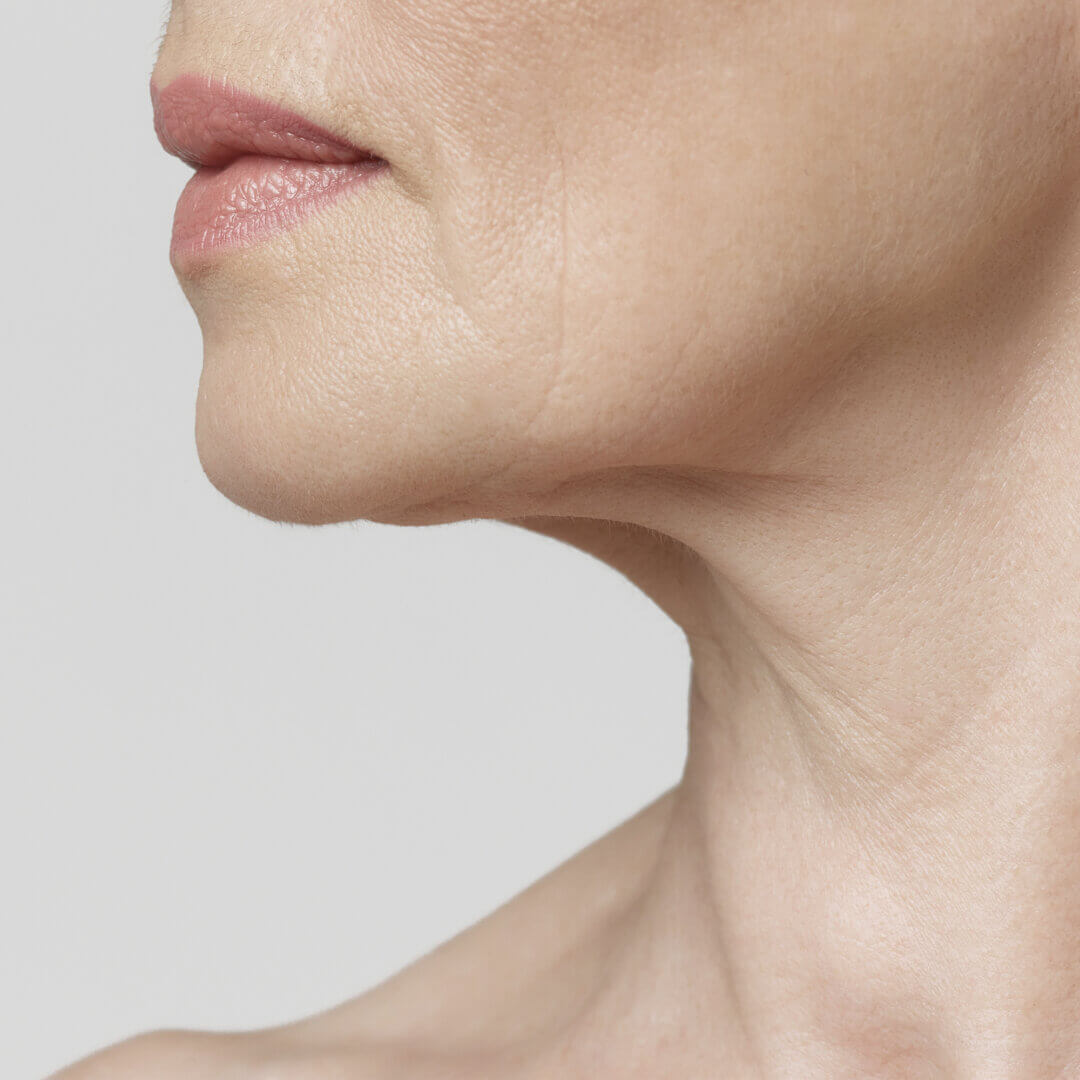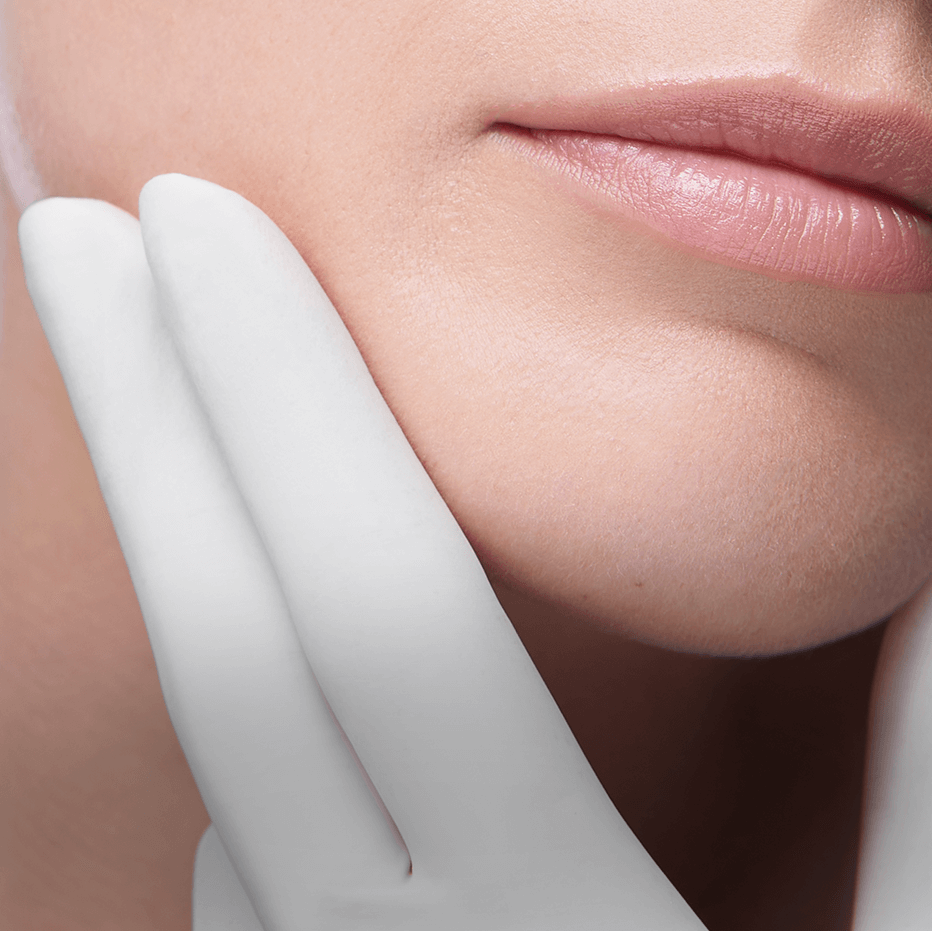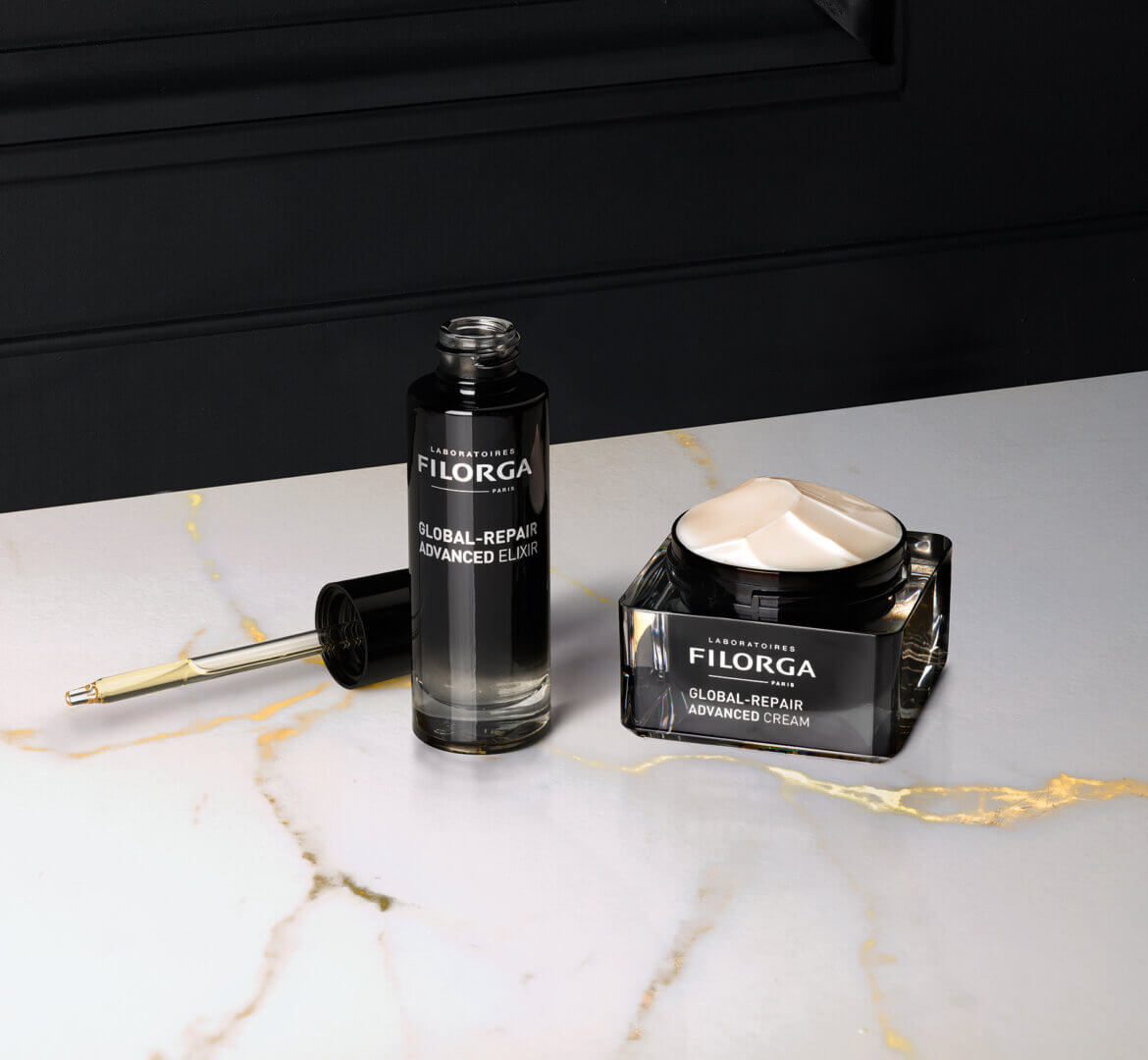
Skin ageing : what is density loss and how can we prevent it ?
December 19, 2024 - Beauty tips
Skin ageing is a natural process that affects everyone. As we age, our skin changes, developing wrinkles and losing density. When faced with these visible signs of ageing, many people turn to aesthetic medicine as a way of restoring their skin’s youthful radiance. Such treatments can be expensive and sometimes require invasive procedures,
but thankfully there are now cosmetic alternatives to aesthetic medicine. These products can help reduce density loss by revitalising the skin and restoring elasticity. But first, before we look into the possible remedies, let’s take a look at the causes of skin ageing and density loss.
The causes of skin ageing
The causes of skin ageing are many and can be divided into two categories:
Internal factors
The main offender here is slowed cell renewal, which reduces the effectiveness of the regeneration of skin tissue. The skin has three layers and each of them is affected by the natural ageing process. For example:
-
The epidermis produces fewer protective lipids. The skin becomes drier and more prone to wrinkles.
-
Dermal fibroblasts, the skin cells that produce elastin, collagen, and hyaluronic acid, become less effective. This results in sagging and reduced elasticity, as well as thinner skin.
-
The fat cells found in the hypodermis, also called adipocytes, store progressively less fat. The face loses fullness and shows sunken features.
External factors
These include:
-
The sun. UV radiation causes damage to skin cells, the production of free radicals, and the appearance of liver spots.
-
Tobacco. Like the sun, it accelerates skin ageing.
-
Lack of sleep, which impairs the skin’s metabolism.
-
Pollution, which makes the skin more fragile.
-
Diet, physical activity, and stress also exacerbate the effects of ageing.
These external factors make up what’s known as the exposome, which refers to all exposures our skin is subject to on a daily basis. These all contribute to premature ageing of the skin, and must be addressed with adequate sun protection and appropriate skincare routines.
The signs of skin ageing
There are various signs of ageing skin.
-
One of the first is dryness. The surface of the skin dries out and can crack more easily.
-
The complexion also appears duller, and pores become more apparent. The skin loses its initial glow.
-
Liver spots may also develop, leaving the skin with an uneven, mottled appearance.
-
Wrinkles begin forming around the eyes, mouth, and on the forehead.
A closer look at volume and density loss.
Density refers to the volume occupied by substances within the skin. The dermis, the intermediate layer of the skin, can be likened to a kind of gel that is both supple and compact, rather like a dense cake with practically no air bubbles, as opposed to an airier sponge.
A loss of skin tone could be compared to the presence of the air bubbles in the sponge. It occurs as a consequence of the same biological processes responsible for wrinkles:
-
Reduced fibroblast activity.
-
Reduced collagen and elastin production.
-
Degradation of the extracellular matrix, which acts as the framework for tissues.
As we age, changes in bone, muscle, and fat cause our facial structures to lose definition. The skin on the face loses volume and slackens under the influence of gravity. Dark circles under the eyes deepen, the cheeks sag, and the contours of the face become more relaxed.
There’s even a very rare genetic disease called Cutis laxa, which is caused by an elastin gene mutation and results in skin tissue lacking any elasticity. Patients with this condition have skin that hangs loosely from birth, meaning that by the age of 20 they have the skin of a 60-year-old. This demonstrates the importance of dermal proteins!
Aesthetic medicine's role in fighting density loss
As 1st French laboratory in aesthetic medicine*, FILORGA produces skincare products that are heavily influenced by techniques used to treat and prevent skin ageing. For you to better understand how our cosmetics work, we think it’s important to explain their origins.
Injections
These are generally the first things that come to mind when aesthetic medicine is mentioned. Several types of injections are possible for skin density loss, and various solutions exist depending on the objectives.
-
PRP (platelet-rich plasma) injections stimulate fibroblast activity to restore dermal density.
-
Collagen or hyaluronic acid dermal filler injections can be used to restore definition to facial features.
-
Injections of fat (taken from the patient’s body) restore volume and stimulate the synthesis of endogenous fat (meaning fat that is naturally produced by the body).

Laser procedures
Like skin peels, laser or pulsed light treatments stimulate skin regeneration. The laser causes inflammatory stress in the skin. To counter this stress, the body releases growth hormone, which in turn stimulates fibroblast activity.
Simultaneously, the heat from the laser breaks down collagen so that the skin can properly reorganise it. The results of collagen remodelling can be observed between 3 and 12 months after the treatment.
The technique targets either the superficial or deeper layers of the skin, depending on the laser’s wavelength.
Radiofrequency treatments
This technique works in much the same way as laser treatments. Heat is generated in the deeper layers of the skin by means of an electrical field. This heat will also break down collagen, giving it a gel-like consistency. The collagen fibres can then reorganise themselves into a tighter structure to improve their physical resistance and restore tone. To put it simply, the skin’s ability to regenerate itself is triggered by making it believe it has been injured.
FILORGA's treatments for density loss provide an alternative to aesthetic medicine
Aesthetic medicine provided the inspiration for the treatments formulated by FILORGA to combat density loss and improve skin quality.
Our GLOBAL-REPAIR ADVANCED skincare duo acts on density loss and the 9 other signs of aging.
-
The GLOBAL-REPAIR ADVANCED elixir contains sesame extract and essential fatty acids to deeply nourish the skin and complement the action of the cream.
-
The GLOBAL-REPAIR ADVANCED cream contains a peony extract that helps preserve the natural mechanism of adipogenesis: facial skin is then able to maintain the volume of its fat cells and retain its density.
Our skin experts recommend applying GLOBAL-REPAIR ADVANCED morning and night, starting with the elixir.
